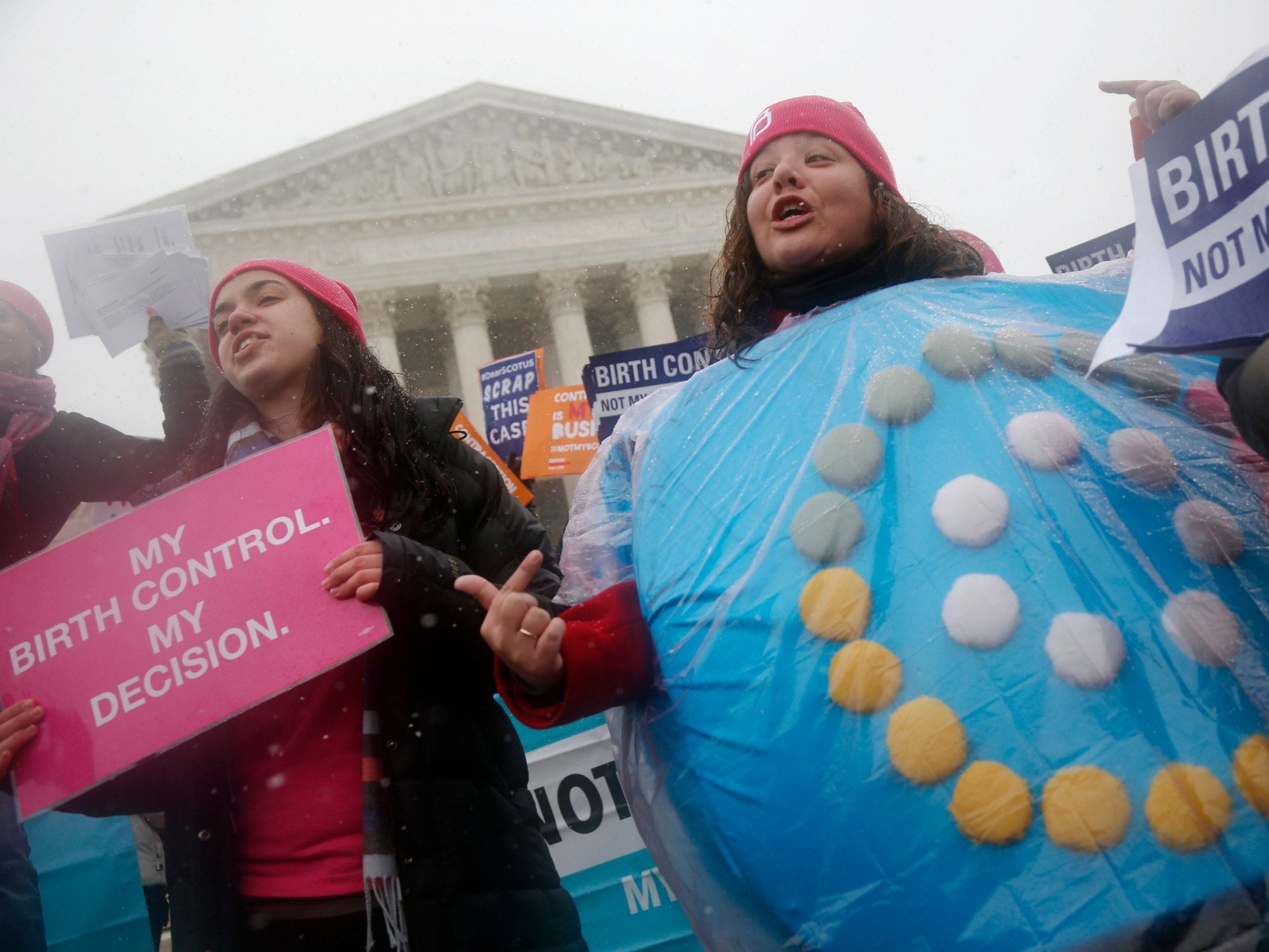US judge blocks Trump from rolling back birth control coverage in 13 states
'Today’s court ruling court ruling stops another attempt by the Trump administration to trample on women’s access to basic reproductive care,' says California attorney general

Your support helps us to tell the story
From reproductive rights to climate change to Big Tech, The Independent is on the ground when the story is developing. Whether it's investigating the financials of Elon Musk's pro-Trump PAC or producing our latest documentary, 'The A Word', which shines a light on the American women fighting for reproductive rights, we know how important it is to parse out the facts from the messaging.
At such a critical moment in US history, we need reporters on the ground. Your donation allows us to keep sending journalists to speak to both sides of the story.
The Independent is trusted by Americans across the entire political spectrum. And unlike many other quality news outlets, we choose not to lock Americans out of our reporting and analysis with paywalls. We believe quality journalism should be available to everyone, paid for by those who can afford it.
Your support makes all the difference.A US judge has partially blocked Donald Trump’s administration from introducing rules which would allow employers to opt out of providing women with free birth control.
Haywood Gilliam granted a request for a preliminary injunction in 13 states, along with Washington DC, while the legal action they jointly bought moves through the courts.
The new rules, scheduled to come into force on Monday, allow private companies to claim religious or moral objections to an Obamacare requirement to provide no-cost contraceptive coverage to women as part of health insurance plans.
The states, led by California attorney general Xavier Becerra, had asked for a nationwide injunction, but Mr Gilliam limited his ruling to those which had challenged the rules.
The other states where the injunction applies are Connecticut, Delaware, Hawaii, Illinois, Maryland, Minnesota, New York, North Carolina, Rhode Island, Vermont, Washington, Virginia, and the District of Columbia. Each has a Democrat attorney general.
Mr Gilliam, a US district judge for California, did not reach a final decision on the case but said the rules likely violated federal law.
He added the changes would result in a "substantial number" of women losing birth control coverage, which would be a "massive policy shift."
“Today’s court ruling court ruling stops another attempt by the Trump administration to trample on women’s access to basic reproductive care," Mr Becerra state in a statement.
The 2010 Affordable Care Act, known as Obamacare, required employers to cover contraception under their health plans at no cost to workers, but created exemptions for religious houses of worship.
In October 2017, Mr Trump’s administration said it would broaden those exemptions and added "moral conviction" as a basis for opting out of providing birth control.
The move sparked an outcry among women’s rights campaigners and Democrats, but was welcomed by Conservative Christian activists and congressional Republicans.
The states sued soon after the rules were announced, arguing they were invalid under a law governing how regulations can be implemented.
Mr Gilliam ruled on Sunday that they had legal standing to file the lawsuit because the rules would cause them economic harm.
California and the other states had argued that women would be forced to turn to state-funded programmes for birth control and many would experience unwanted pregnancies.
"The law couldn't be more clear - employers have no business interfering in women's healthcare decisions," said Mr Becerra. “It's 2019, yet the Trump administration is still trying to roll back women's rights. Our coalition will continue to fight to ensure women have access to the reproductive healthcare they are guaranteed under the law."
The US Department of Justice, which is fighting the case, said in court documents that the rules "protect a narrow class of sincere religious and moral objectors from being forced to facilitate practices that conflict with their belief”.
Join our commenting forum
Join thought-provoking conversations, follow other Independent readers and see their replies
Comments